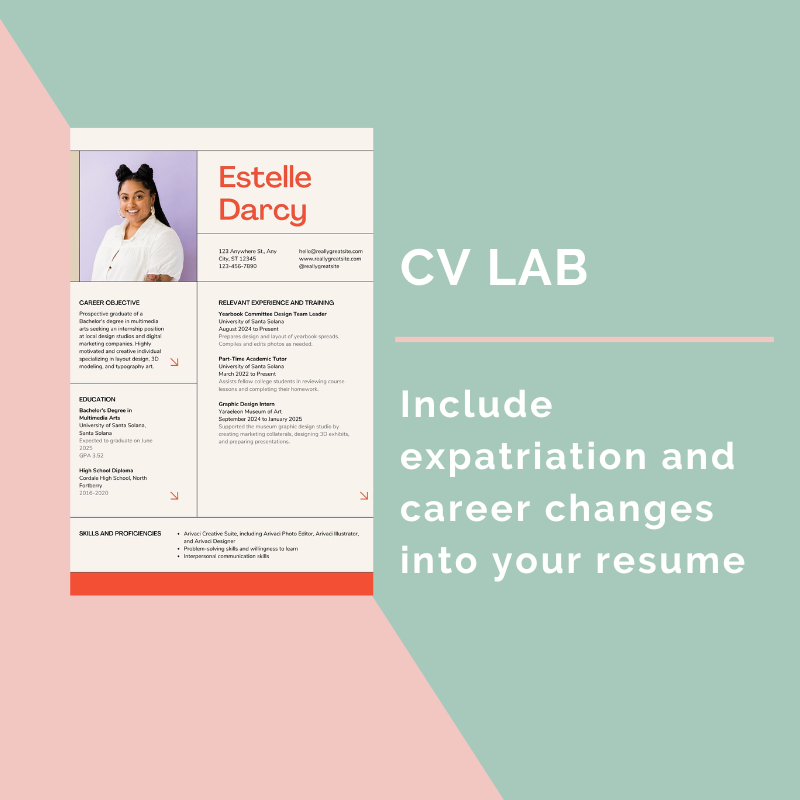
The secret ingredient that turns a profession into a vocation
In psychology, many scholars have already addressed the question of what the difference is between a profession and a vocation and why people who are lucky enough to have found their vocation are so much more fulfilled in their lives. In this blog post, I’ll give you insight into the fundamental distinction between a profession and a vocation, and let you in on the secret ingredient discovered through research that turns a profession into a vocation.
The difference between profession and vocation - finding a definition
In 1991, psychologists Wrzesniewski et al. defined the three main occupational groupings as job, career, and vocation.
Having a job
People with a job work mainly for the sake of money. They do not expect any additional benefit from their professional activity, such as meaningfulness. Their work is merely a means to a lifestyle end, and interests and ambitions are not expressed through career choice.
Having a career
In contrast, individuals with careers invest more in their work and therefore not only benefit financially but also set their sights on career advancement and status gain. Research has found that a career is associated with higher social status, more power within the work environment, and higher self-esteem for the individual.
Having a vocation
That leaves the third category of the working definition: that of a vocation.
In a vocation, the job is perceived as inseparable from life. Money and career are not the focus, but rather the fulfillment experienced through work. People who perceive their job as a vocation report a higher commitment to their job. They also report less stress, depression, and coping strategies. The bottom line is higher work and life satisfaction compared to people with a job or career.
Thus, having a vocation is a special form of success. In this context, the meaning of life is seen in professional activity, which is significant insofar as it is an important resource for well-being. „Sinnerleben“ is seen among psychologists as an elementary source of life satisfaction and as a buffer against depression and anxiety. Considering the amount of time a person spends at work, it is obvious that work is an important place for finding meaning and today’s Zeitgeist supports the increasing questioning of the meaningfulness of the actual job. The personal living space and the basic structure of the family require a great deal of energy, while at the same time the availability of support and daycare is becoming more and more limited. If a second career is necessary, it should at least be perceived as meaningful, according to many articles.

Can I find a vocation in the wrong profession?
In common language, a vocation is often associated with religion or God, that is, with a personal sense of destiny to become involved. The term „vocation“ originally comes from the (Christian) religious context, as it defined the invitation from God to join the clergy. In the meantime, however, this view has changed, and nowadays the perception of a profession as a vocation is not limited to occupational fields. One might immediately think of the doctor who feels that her profession is a vocation because, on the one hand, she is doing something great and, on the other hand, she is always automatically placed on a higher level socially. Studies show, however, that cleaning ladies, kitchen assistants, or hairdressers can also experience their job as a vocation. They explain this feeling by stating that they see the meaning of their activity in the fact that they contribute to the well-being of others.
Also interesting in this context: the concept of time!
A vocation is not necessarily something that is discovered once and lasts for the rest of one’s life. Rather, it is a constant process of evaluating a professional activity in terms of the contribution it makes to a larger whole, such as the well-being of others. Thus, even someone who has not taken up his or her original dream job can experience a vocation by organizing or designing work in such a way that it is transformed into a vocation. And also someone who has studied medicine can search for his vocation throughout his life because the basic requirements do not fit his individual case. A vocation is not a guarantee for life, which gives hope to those who have not yet found their vocation. This means that every person can experience a vocation, which goes hand in hand with the assumption that a vocation refers more to the individual point of view than to the actual content of the work.
So we do not have to change our profession to find our vocation in our profession. So what is it then?
This means that every person can experience a vocation, which goes hand in hand with the assumption that a vocation refers more to the individual point of view than to the actual content of the work.
Turning a profession into a vocation: The kick-off ingredient
Step 1: Recognizing and reflecting on strengths in a private and professional context
The strengths and the applicability of one’s own strengths is an essential part of finding a vocation in one’s profession. Studies show that people see their profession significantly higher as a vocation if they can also use their essential character strengths in their work environment. Therefore, there is enough room in my coaching program to recognize and formulate one’s own strengths utilizing proven questionnaires. The definition is one part of the process but it is equally important to reflect on how these strengths are currently utilized in the private and professional context! I have also written about character strengths on the blog. You can find the full article here.
Step 2: Thinking of ways to incorporate more character strength into your professional life.
Now you have to use your creativity to find new ways in which your strengths can be used in your everyday, professional life. Think about the most concrete ways in which you could use your signature strengths in your work. It could help to formulate „if-then“ sentences, in the sense of „if x happens, then I do y“.
Step 3: Assessing yourself
Next, it is a matter of looking at oneself and one’s professional situation and the application of the defined strengths over a longer period of time and reflecting on oneself again and again:
- Was I able to use my top 4 strengths this week?
- In what way was I able to use my strengths?
- What can I change in my daily routine to leverage my personal strengths even more?
What I love about this concept of utilizing strengths to turn a profession into a vocation
The exciting thing about the concept of vocation in my eyes is that the client herself has it in her hands to lead her profession piece by piece to a vocation. It is much less dependent on external circumstances and on the choice of a profession than it might seem. Rather, it is up to the client herself to define her strengths, to reflect on the strengths, and to successively increase the frequency of use of these strengths in the existing profession. If you are looking for support for this, a coach is exactly the right choice! I am happy to be at your side, help you with the individual steps, and above all accompany you in the long term on the way to really implement these strengths. If you want to know more about it, please sign up for a free meeting in my calendar.
And now I wish you lots of fun and fulfillment in turning your profession into a vocation!

Do you know anyone who might find this helpful? Share the Love by sharing this article
Ebook for the accompanying partner
Quitting your job and joining your partner abroad does not need to end your professional career. Learn what options you have and how to define what you really want during your time abroad. Make it to your own personal journey and get the most out of it!












Eine Antwort
It’s a game. Five dollars is free. Try it It’s not an easy game
->-> 카지노사이트 .COM